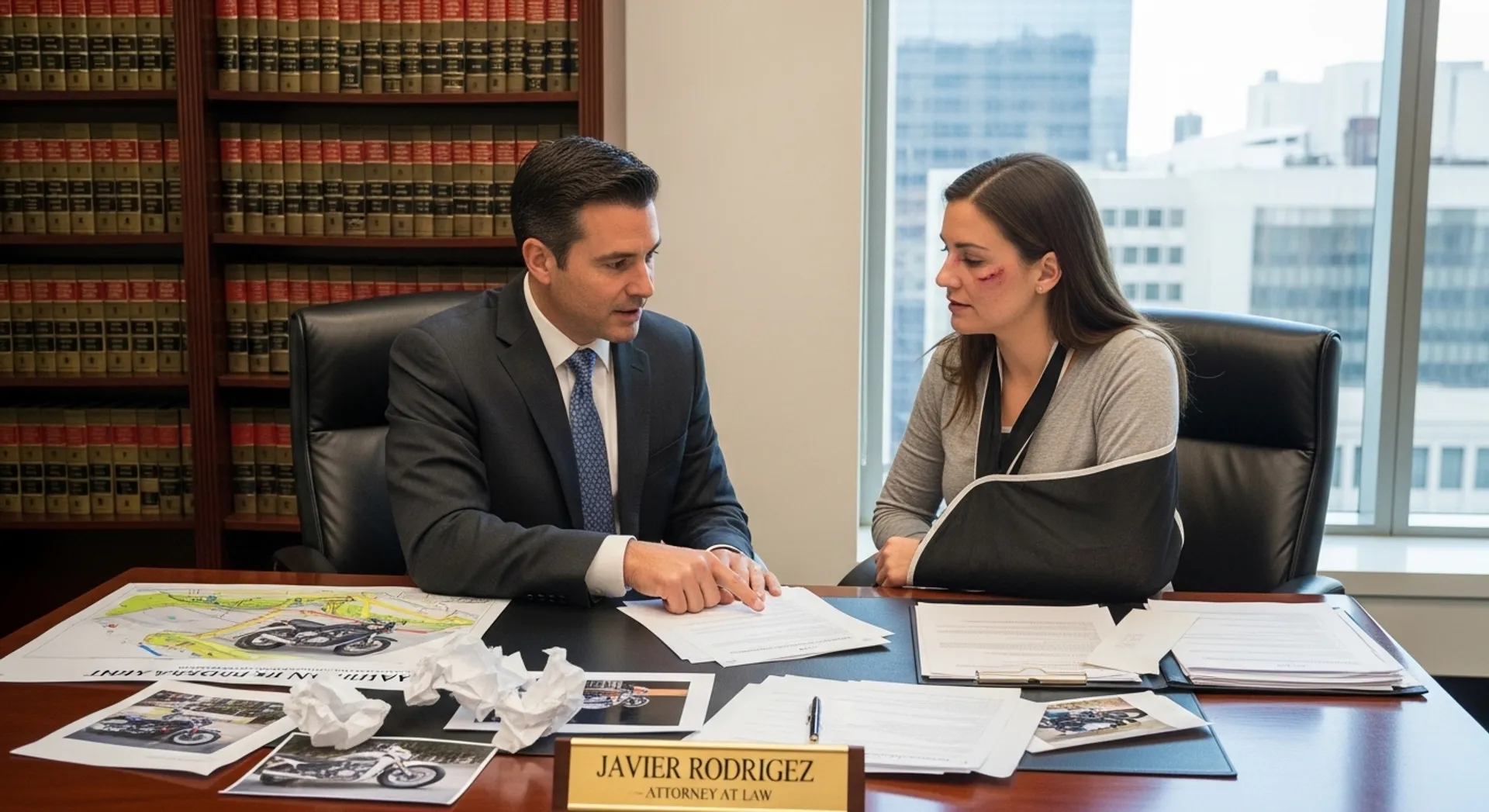Introduction
If you’ve been in a motorcycle accident, you may be wondering, “Can I still get compensation if I was partially at fault?” The short answer is yes, but the amount you receive may be reduced based on Comparative fault in motorcycle accidents in your state.
Comparative fault determines how much each party is responsible for an accident. This guide explains how shared responsibility affects your claim, how to protect your rights, and what you can do to maximize your compensation.
What is Comparative Fault in Motorcycle Accidents?
Comparative fault (also called comparative negligence) is a legal principle that assigns a percentage of blame to each party involved in an accident.
- If you were partially at fault, your compensation may be reduced.
- If the other driver was mostly at fault, they are responsible for covering most of your damages.
Each state follows different comparative fault laws. Check your local laws or consult a motorcycle accident lawyer for legal guidance.
Types of Comparative Fault Laws
Different states handle shared fault in different ways. The most common systems include:
1. Pure Comparative Fault
- You can recover compensation even if you were 99% at fault.
- Your payout is reduced by your percentage of fault.
Example: If you were 40% at fault and your total damages were $100,000, you would receive $60,000 (after a 40% deduction).
States That Use This System: California, Florida, New York, Washington
2. Modified Comparative Fault (50% Bar Rule)
- You can recover damages only if you were 49% or less at fault.
- If you were 50% or more at fault, you get nothing.
Example: If you were 30% at fault and your damages were $100,000, you would receive $70,000.
States That Use This System: Texas, Colorado, Georgia, Indiana
3. Modified Comparative Fault (51% Bar Rule)
- You can recover damages only if you were 50% or less at fault.
- If you were 51% or more at fault, you get nothing.
Example: If you were found 51% responsible, you cannot recover any damages.
States That Use This System: Illinois, Ohio, Michigan, Nevada
4. Contributory Negligence
- If you are even 1% at fault, you cannot recover any compensation.
- This is the strictest system and is used in only a few states.
Example: If you were 5% responsible for an accident, you receive nothing.
States That Use This System: Alabama, Maryland, North Carolina, Virginia
Not sure which rule applies to your state? Check your state’s laws or speak with an attorney.
How Shared Fault Affects Motorcycle Accident Compensation
If you were partially responsible for your motorcycle crash, your compensation will be reduced based on your percentage of fault.
📌 Key Factors That Can Impact Your Fault Percentage:
- Speeding or reckless riding
- Lane splitting (in states where it’s illegal)
- Running a red light or stop sign
- Failure to wear a helmet (in states with helmet laws)
- Driving under the influence (DUI)
Insurance companies will try to blame you for the accident to reduce your payout. This is why it’s critical to have an experienced motorcycle accident lawyer on your side.
How to Prove You Were Not at Fault
Even if the other driver blames you, you can fight back with strong evidence.
✔ Gather evidence from the accident scene:
📷 Photos of the crash site, vehicles, and road conditions
📋 Police report (Request one here)
👥 Witness statements
🎥 Traffic camera or surveillance footage
✔ Hire an expert witness:
- Accident reconstruction specialists can analyze the crash and determine who was at fault.
- Medical experts can confirm the extent of your injuries.
✔ Work with a motorcycle accident lawyer:
- Lawyers can challenge unfair fault assignments and negotiate with insurance companies.
Need legal assistance? Contact a motorcycle accident attorney for a free consultation.
Common Myths About Comparative Fault in Motorcycle Accidents
- Myth 1: If I Was Partially at Fault, I Can’t Get Compensation.
- Truth: You can still receive compensation unless your state follows contributory negligence rules.
- Myth 2: The Insurance Company Will Treat Me Fairly.
- Truth: Insurers aim to pay as little as possible. Without legal representation, they may assign you more fault than you deserve.
- Myth 3: I Don’t Need a Lawyer if I Was Partially at Fault
- Truth: A lawyer helps reduce your fault percentage and fights for a fair settlement.
Final Thoughts
Understanding comparative fault in motorcycle accidents is crucial if you’re partially blamed for a crash. Even if you share responsibility, you may still be entitled to compensation.
To protect your rights and maximize your settlement, consult an experienced motorcycle accident lawyer today.




